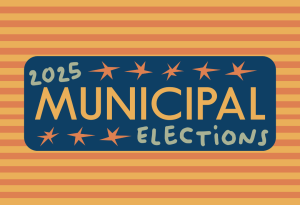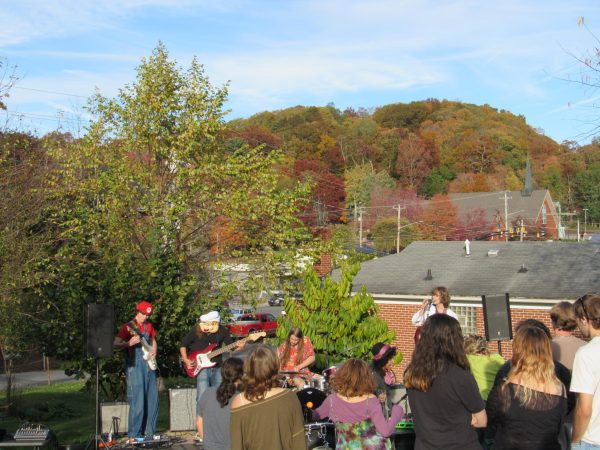OPINION: Students staying in Boone are overcharged for rent
March 23, 2020
The coronavirus pandemic is impacting one demographic in particular: student renters.
With classes moving online after a weeklong extension of spring break, and university officials urging students to remain off-campus, some students have gone back home, leaving an economic burden in Boone: rent.
Nearly 70% of Mountaineers live in off-campus housing, and because Boone’s average rent costs over $800, students no longer need to spend money on off-campus housing. College is an expensive investment for students and their families. Yet, renters need students to follow their contractual obligations to stay open. Allowing students to renege on contractual obligations is unethical, as is forcing them to pay for a service that is no longer needed with the UNC university shutdown. Therefore, the ethical course of action would be to allow low and moderate-income students to pay rent at a reduced rate.
Currently, under North Carolina law, a tenant can only legally break their lease if they are the victim of violence, beginning active military service, their rental unit violates safety or health codes, or the landlord violates their privacy rights. However, pandemics are not covered in the fine print.
Without legal justification, a lease’s early termination is at the landlord’s discretion. Failure to comply with the law implies hefty fees and fines for the renter. Worse, failure to pay rent on time can lead to eviction, damaged credit and hardship in finding a future rental.
North Carolina Supreme Court Chief Judge Cheri Beasley halted eviction hearings for 30 days in her March 15 memo to courts across the state. This is not nearly enough.
The General Assembly and Governor Roy Cooper (D) must halt all evictions, foreclosures and utility disconnects in North Carolina for at least 90 days. This gives renters the opportunity to obtain the finances needed to pay off their rent.
Furthermore, the General Assembly and Cooper must create a window of at least 90 days after the State’s Emergency Declaration is revoked for renters to pay back owed rent before facing legal repercussions.
Landlords and rental companies must be financially flexible. While breaking a lease may not be feasible, rent payment should be reduced by 10 to 50% depending on the income of tenants. As stores across America begin to reduce hours, the pockets of many families will begin to shrink, causing a spillover into making rent payments on time.
App State’s Student Government Association must create a taskforce to bring all affected parties to the table to ensure the welfare of students. The taskforce must start a dialogue with students, university officials, landlords, and rental companies on how to move forward.
Lastly, App State officials must develop a strategy to financially assist economically vulnerable students with rent payments during this time along with beginning the refunding process as soon as possible for all services students no longer use.
While many students are choosing to remain at home, instead of remaining in Boone, landlords should still remain flexible because the terms of the lease have changed. The majority of students rented off-campus housing with the expectation of attending class in person. Now, because classes have moved online, there is no longer a housing demand in Boone. This means that students are being overcharged because the demand for off-campus housing has shrunk. Therefore, the cost should be reduced to match the current demand for off-campus housing.














Rj • Apr 29, 2020 at 4:08 am
Hmm.. has anyone ever told you that buying a house doesn’t make you entitled to receive a return on investment for it? If you can’t pay your mortgage, maybe you should get a second job or stop eating avocado toast. The problem with rental property and buying property, in general, is that people expect to never lose money or value on their home and to this I say: Too. Bad. Investments are risks and although typically one of the safest investments, it doesn’t mean that there isn’t a risk involved. Now with no jobs & no money, are students supposed to fork over every cent they do (or don’t have, aka take out loans from a bank or someone else) to pay for rent on a place they’re not be utilizing? and even if they are staying, rent reductions are absolutely necessary. It is not the student’s fault this pandemic happened and cannot afford rent, but actually the landlord’s fault for not planning for a lack of income from the rental property.. it’s called financial planning and if you’re leasing out a place you purchased with the bank’s money, you probably should learn it. We have a business school at App State for a reason…
Cane • Apr 2, 2020 at 3:20 pm
To those telling the opinion writer, “Welcome to life,” I might say the same. To the landlords in particular, I might say, “Welcome to capitalism.” As @pangmeli on twitter wrote: “landlords are the only investors I’ve encountered who expect their investment revenue to remain constant & level no matter what the market forces are.” Investment carries risk. There’s no guarantee that your investment will pay off.
Dan • Mar 25, 2020 at 6:15 am
Interesting that there are comments about landlords making a killing. I have been a landlord for 25 years and I don’t recall ever making a killing. Like so many businesses it takes time and patience and you experience good years and not so good years depending on a variety of factors. I have a lot of control over how my properties look but one thing I cannot control is the market value for rent. In a free market the price for housing is set based on supply and demand. If you choose to live in Boone, then you choose to deal with rental market already established.
Brie • Mar 24, 2020 at 10:37 pm
B let me know how you file for FAFSA because I’d love to have enough to pay for anything outside of school with my financial aid.
Brie • Mar 24, 2020 at 10:31 pm
So you can include landlords perspective and that’s important to an extent but many apartments are from the 70s and have little market value and were paid off at one time or still are. I love in a complex with 5 loft apartments that hasn’t been renovated since it was built no washer/dryer or anything included for $790. Plenty of damages made never repaired. If someone decides to be a landlord they are taking a responsibility to deal with upholding a property just like tenants who sign a lease. It is both a choice but the point is that it’s ridiculous when a college student who can’t work can’t live up here and needs assistance because their flat out broke. Or a local couple with a baby on the way who can’t find somewhere affordable to live. Watauga county is one of the poorest counties in the state yet has one of the highest real estate markets and rent prices for less than anything is ever worth. So on behalf of tenant and landlord something has got to change with these high land prices as well as rent prices. Also landlords would have to pay property taxes regardless if it was inhabited or not so all landlords should be thanking tenants for helping them pay their bills. I come from Robeson county NC also poor and back there you can rent a 3bd/2bth house for $800 easy! So there’s literally no excuse for high prices except taking advantage of the vulnerable poor.
K.B. • Mar 24, 2020 at 12:19 pm
It’s all overpriced, and no-one from Boone can really afford to pay rental costs. The landlords are making a killing, and I really don’t have much sympathy for them. Perhaps toward smaller complex owners, yes, but not these gigantic communal apartment complexes.
The cost of rent needs to be decreased for both students and non-students. Students have loans & scholarships alongside many come from higher-income areas where coverage of the cost of Boone is relatively cheap.
The non-students are who suffers.
The rental cost needs to be decreased for both, and then students can use the extra loan and scholarship money leftover to further support their studies on supplies, laptops, computers, and the ilk. It would benefit both students and non-students for the town to do something about the huge rental cost.
Also, they need to quit allowing complexes to build commercial property on lower floors that go vacant (a.k.a. the standard for one) because those empty commercial properties are being built purposefully for tax breaks. The landlords are receiving sizable tax breaks because the commercial rentals go unrented.
Boone needs to fix the situation for both students and non-students.
B • Mar 24, 2020 at 6:52 am
Yes, this sucks…. For EVERYONE. What about the landlords who are paying the bills for their family with these rentals??? Screw them?? This isn’t that well thought out. You are just making this soley about the college students. There are a lot more people to take into account here which you have clearly and purposefully ignored. If you want to write decent articles…. You have to look at all sides. Do you just assume all landlords are rich or something? That is generally very far from the truth. Reducing rent then reduces income for other working folks. A lot of rentals that are owned by individual people do not have amazing margins. They may have a profit of a few hundred dollars a month each. So, say you have five rentals that make a total, IN PROFIT, AFTER MORTGAGE, INSURANCE, ALL BILLS, of maybe $1500/month and that helps out food on the table for your family…. What do you suggest there? Sacrifice the well-being of your family? You really need to do better and more thorough research before you get all pumped up and jump on your soapbox. I’m not a landlord. Just so you know. I rent as well. But this article makes no sense. My landlord is just a man who has a family and I know my rent helps pay their bills. Low income students (LIKE ME) already have our financial aid which helps pay that rent so our rent is mostly covered at this point…. So we should just lay less because…. Why? Bad article
DS • Mar 24, 2020 at 6:48 am
Not all students are single with a [wealthy] parent to pay their rent. Some of us have children and pay around or over $900 (2 br 2 ba) a month for a minimumly maintained unit that was not built very well – the wind blowing through the large gap at the bottom of the front door, we moved in with mold on the walls, the screens on the windows easily fall off because they were never fitted correctly, etc. — while we paid $725 for a highly maintained 2 br 2 ba apartment with free cable TV (plus HBO), a swimming pool, and a gym in Asheboro. Boone prices are definitely inflated because it’s a collage town. We moved in simply out of desperation. With a family we couldn’t afford to pay $500+ per room and potentially be forced to have roommates around our young children. If there were more choices I’d never have rented this unit or any other property in Boone. Desperation and necessity dictated our decision. There’s a monopoly on Boone real estate, and the local lawyers cannot represent student renters because they already represent the rental agencies. … That being said, it’s beautiful here and I’m grateful for the opportunity to further my education and get a decent job where I can afford a better place to live with my kids and husband one day. Maybe not in Boone, but ya never know.
Kate • Mar 24, 2020 at 5:57 am
I’m not a student. But with this all happening I’m afraid I’ll lose my apartment. I understand landlords have bills to pay, but so do I. A lot of the property owners up here are quite well off and I think in this time of crisis maybe everyone up here in these mountains should not be selfish and help each other out. The students cause rent to be super expensive for the average person that works and lives here all year round, so forgive me for not honestly giving a damn about the students, but the families and average person that would also need help in this situation.
Andy • Mar 24, 2020 at 5:09 am
Lucky I’m to the point in life that I own my own home. So these days are behind me thank goodness. Having worked and been a supervisor with around 70 employees working directly under me I’ve heard this rent issue for years. Truth is ASU students is why rent is so high to start with. ASU has grown every year pushing up demand. Then you throw in the cost of land and taxes and 20 other things the city and county charge owners for. The prices of those have been driven up to a outrageous level also by ASU and their endless money supply. Then having managed apartments in my younger years I can honestly say the kids can leave in the middle of the night with rent owed and apartments in shambles. Can only imagine that has gotten worse with this me,me,me, free,free,free generation. Anyway if you think it’s hard for students try being a young local couple with a child trying to paying these high rent prices driven up by the same people that’s wanting something for little. In reality if a discount is giving it should be in form of rebate check from ASU. Not the business owners.
Steven parks • Mar 23, 2020 at 10:44 pm
Sounds like john W is in someone’s back pocket. App students make that town, without them boone would lose its cash cow. Between rental and parking fees I am sure owners could give students a break on rent as it was not there choice to do online schooling.
William Epstein • Mar 23, 2020 at 9:32 pm
The opening statement regarding being able to reduce your rent because of circumstance that is out of your control. That is basically what your stating. You are looking for an out. Looking for someone else to make it easier for you because of your situation and others like you. Life happens. Issues for people happen every day.
Granted is the fact that pandemics dont happen every day or very often. Thank God. Life unfortunately is handing you a lesson. Many things can impact your potential to pay a debt. Thats why there are contracts.
One huge situation happened many years ago during the S&L crisis. Long story short. The banks that were going under pulled the loans on developers of properties. The developers , even though they had money invested in their properties , lost the land to repossession because they couldnt pay the recalled loan. This can happen to anyone at any time. Even home mortgage loans and car loans. A bank can recall a loan at any time. If you cant pay the note ,when called ,they can take your collateral ( home , car , land etc. ) This is a hard lesson but its real life. I have a daughter, that is home, that was a senior. Supposed to graduate in May. She worked hard in school. Was looking forward to walking across the stage and getting her hard earned diploma. Thats not happening either over this situation. Life happens. You have to be ready to move with the flow. Unfortunately she is experiencing disappointment now, but life will march on. We will find a way to continue to pay out the obligation for her off campus rent. Integrity and finishing our commitment is paramount. Just like finishing your degree at school. See it through. Life is hard at times. Lesson learned.
Sky • Mar 23, 2020 at 5:42 pm
Thank you for this piece. I am a first generation college student. My family was only able to get me to college because of hefty government assistance, which I am very grateful for. However, my housing is paid out of pocket. I am disabled, so finding a job (especially now) is extremely hard. My mother is retired, my father is a disabled veteran who cannot physically work.
Due to this crisis it is not feasible for me to live in Boone, and it is a lot easier on me to be at home in Hickory. But, I still will owe $730 a month to one of the richest people in Boone for a place I’m not even in. Sure, I could go back. It is an absolutely terrible idea, but I can do it.
A reduced rate or someone to take my lease would really be the best thing for my family and I. I don’t think it will happen and we may have to go without some essentials, but I wish it would. Does this mean I should grow up? I don’t think so. But I suppose the people saying that haven’t lived in poverty their whole life, so what can you do?
John W. • Mar 23, 2020 at 2:06 pm
Welcome to life. This kind of stuff happens all the time. If signed a lease and you are not being told you cannot use the apartment. You are choosing to not live in it. That’s on you, not the landlord. This is a good introduction to life after you grow up.
Steven Mercer • Mar 23, 2020 at 12:48 pm
While I applaud this opinion piece for being well thought out and researched, it only takes one perspective into account. What about looking at the situation from the landlord’s perspective? The landlord most likely has a mortgage on the property being rented and thus has to make monthly mortgage payments. The tenant’s rent covers these mortgage payments. By reducing the rent for the tenant, and / or allowing more time for the tenant to pay, this could place an undue burden on the Landlord who will still be required to make their monthly mortgage payments. How will the Landlord come up with the money to make these payments to the bank? Arguably, if a student defaults on rent, they will have their credit hurt, but not nearly as bad as the Landlord will have their credit hurt by defaulting on a mortgage. Further, the argument sets a precedent that legal contracts should be open to negotiation based on the market’s circumstances. In following the same logic, the Landlord should be able to renegotiate the price of their mortgage with the bank and their monthly payment amounts every time the market changes. After all, if a student’s rental contract should be renegotiated because of market demands, why should all contracts be renegotiated based on market demands? Or, to make it more personal, lets say the market jumps and rental prices in Boone increase? Will the Landlord then be able to renegotiate the contract with the student so that the student pays more money in line with the market? I think the author’s of this opinion piece may take issue with this. As a fellow renter in Boone, I appreciate the circumstances that have warranted this Op Ed. However, I suggest that the authors go back to the drawing board and come up with a solution that works for both parties rather than a solution that takes care of the needs of the students at the expense of their Landlords.